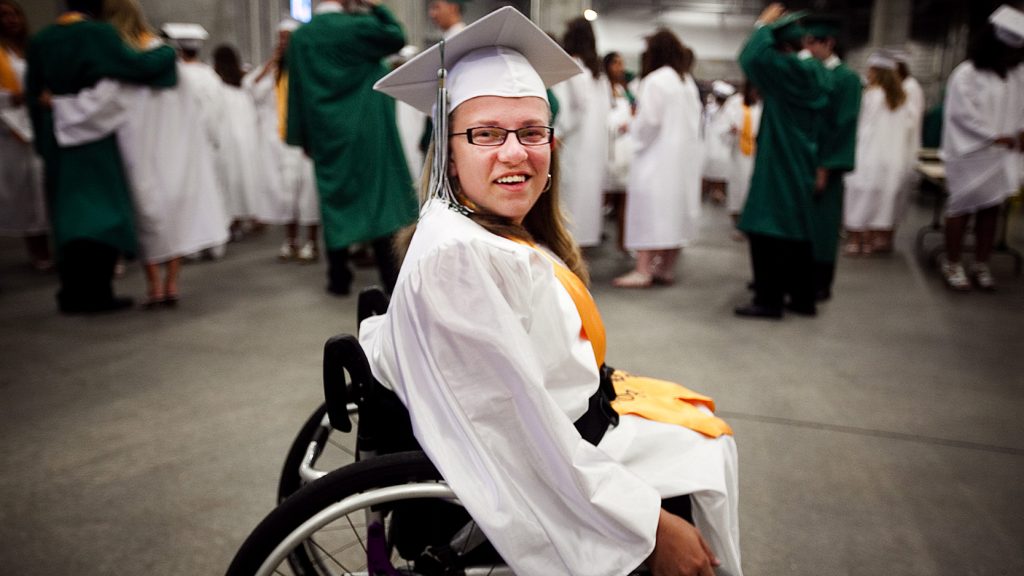Education
- AHEAD (Association on Higher Education and Disability) Policy Agenda/Platform (2022) – Outlines the details of AHEAD’s positions on policy issues that ensure full, effective participation by individuals with disabilities in every aspect of the postsecondary experience.
- Disability Rights Laws in Public Primary and Secondary Education: How Do They Relate? – Parents and caregivers of children with disabilities are often confused about which laws protect their children from discrimination and provide access to educational and related services in public K-12 schools. Fact sheet from the ADA National Network.
- Impact: Feature Issue on Inclusive Higher Education for People with Intellectual, Developmental, and Other Disabilities (Spring 2022) – Published by the Institute on Community Integration (MN UCEDD), this issue focuses on inclusive higher education.
- Individuals with Disabilities Education Act (IDEA) Workforce Shortage – Policy brief by the 2022-2023 cohort of New Hampshire-Maine Leadership Education in Neurodevelopmental and Related Disabilities (NH-ME LEND) Program Trainees. The Individuals with Disabilities Education Act (IDEA), our nation’s special education law, ensures special education and related services to children with disabilities. One in every seven students in the United States receives special education services through the IDEA, requiring a large, highly qualified special education workforce to support students’ rights to a free and appropriate public education (FAPE). Special education personnel shortages and attrition rates negatively affect access to FAPE. These shortages are directly related to inadequate pay and training which, in turn, leads to difficulty in recruiting and retaining interdisciplinary IEP teams.
- The LEND Self-Advocacy Discipline Network Presents: Introduction of the LEND Self-Advocacy Discipline Competencies (2022) – Association of University Centers on Disabilities (AUCD) archived webinar with handouts. Leadership Education in Neurodevelopmental and Related Disabilities (LEND) training programs must include individuals with disabilities as Self-Advocate trainees as a distinct discipline alongside graduate students, family members, and community trainees. The purpose of the LEND Self-Advocacy Discipline Competencies is to offer LEND training programs a set of tools to help self-advocate trainees individualize their leadership goals and learning plan during their participation in a LEND training program.
- Maine Access to Inclusive Education Resources (MAIER) – Located at the University of Maine, MAIER is an information and resource clearinghouse for professionals and families to assist in accessing and navigating programs and services related to inclusive education of students with disabilities.
- Maine Educational Center for the Deaf and Hard of Hearing (MECDHH) – The MECDHH and the Governor Baxter School for the Deaf collaborates with various state agencies, stakeholders, the Deaf community and family-based organizations to build a strong educational system for Maine’s deaf and hard of hearing children.
- Micro-Credential: Inclusive Education PreK-12 – This micro-credential recognizes and validates the learner’s successful completion of the University of Maine System (UMS) Inclusive Education PreK-12 (Levels 1, 2, and 3 Badges). The learner completed 20 hours of online training to support emergent skills, knowledge, and application in foundational principles of inclusive practices. Current education professionals can earn 2 CEUs from the University of Maine System. Non-education professionals and pre-service educators can earn 20 contact hours.
- New Hampshire-Maine Leadership Education in Neurodevelopmental and Related Disabilities (LEND) Program – Provides graduate-level interdisciplinary leadership training for individuals with disabilities, family members, and students and professionals from diverse disciplines, including developmental pediatrics, early childhood education, social work, psychology, occupational therapy, health management and policy, and speech language pathology.
- Think College – From the Institute for Community Inclusion, UMass Boston, (MA UCEDD) Think College is a national technical assistance, research, and evaluation center dedicated to developing, expanding, and improving higher education options for students with intellectual disability. Think College Fact Sheet.
- University of Maine Interdisciplinary Disability Studies Minor – The curriculum provides students a means to explore disability within the larger context of diversity and to examine professional practice, scholarship and policy related to persons with disabilities. The minor consists of 24 credits distributed among elective courses in three categories: social change, diversity studies, and environmental context; and three core interdisciplinary courses taught by faculty with expertise in disability studies.
- University of Maine Online Graduate Certificate in Disability Studies – The certificate program is a progressive 9-credit graduate-level curriculum in which individuals from a variety of disciplines and professional backgrounds can study with students and professionals from other fields to acquire specialized knowledge in disability theory, policy and research.
Updated: 010/04/2023

